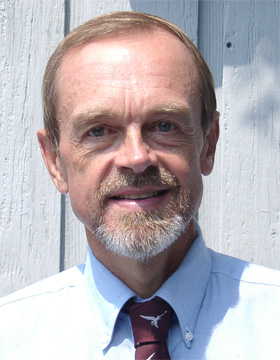
Philip S. Kitcher, Ph.D.
John Dewey Professor of Philosophy
Columbia University, New York
Born in 1947 in London
Studied Mathematics, History and Philosophy of Science at Cambridge University and at Princeton University
Project
Pragmatic Naturalism
The classical Pragmatists, especially William James and John Dewey, worried about the state of philosophy in their times. Like other philosophers who have become interested in Pragmatism (notably Richard Rorty and Hilary Putnam), I see James and Dewey as identifying shortcomings that are as pertinent today as they were almost a century ago. My project will explore the possibility of renewing Pragmatist hopes for "reconstruction in philosophy" in our own times.Pragmatism starts from the idea that the principal task of philosophy is to make sense of the picture of the world that emerges from various branches of inquiry and to show how this picture relates to our values and concerns. Philosophy does not have independent a priori sources from which the "ultimate character of reality" or the "basic laws of value" can be determined. Instead it is a synthetic discipline, drawing from the various sciences (broadly construed) and attempting to achieve a focused perspective on our contemporary predicament. My goal is to build on my previous work with respect to mathematics, natural science, ethics, religion, and society to articulate a pragmatic vision that will be thoroughly naturalistic: there will be no appeal to the mysterious entities and processes that philosophers belonging to many traditions have invoked.
Recommended Reading
Kitcher, Philip. The Ethical Project. Harvard: Harvard University Press, 2011
(in print).
-. Science, Truth, and Democracy. Oxford: Oxford University Press, 2001.
-. Living with Darwin. Oxford: Oxford University Press, 2007. (German edition: Mit Darwin leben: Evolution, Intelligent Design und die Zukunft des Glaubens. Frankfurt: Suhrkamp, 2009.)
Colloquium, 25.10.2011
Ethics as a Human Project
Traditional accounts of ethics think of our ethical practices either in terms of revelation or of discovery: the ethical truths are disclosed to us by some special source or they are discovered (typically by especially acute thinkers). Divine command approaches have been problematic ever since Plato, and no philosophical account has gained wide credibility. My aim is to outline an approach to ethics that dissolves mysteries.
Darwin's most fundamental insight was that the organic world can be understood in terms of its history. An analog of that idea can be applied to human practices in general, and ethics in particular. We might hope to understand our ethical practices by recognizing the ways in which they have emerged from a pre-ethical state: How did we get from there to here? Although there are many details that must remain uncertain, I shall present a narrative that offers important general themes.
That narrative begins with the lives of our hominid ancestors, whose capacities for psychological altruism were enough to enable them to live together but not to live together easily. They escaped the predicament that our evolutionary cousins still face by acquiring a capacity for directing their own conduct. Working out rules for their interactions, they were able to avoid some of the altruism failures that had given rise to social tension. From these primitive beginnings emerged a series of "experiments of living" (J.S. Mill) that culminates in the complex ethical perspectives visible in the ancient world.
Thinking of ethics in this historical fashion poses difficulties for the thought that ethical progress is made when innovators discover previously unacknowledged ethical truths. The historical episodes we can most closely analyze show no "moments of ethical discovery", analogous to occasions of scientific breakthrough. I suggest that we can, nonetheless, think of progress in ethics, but that we should think of it in terms of problem-solving, as progress from, rather than progress toward. Ethics emerges as a social technology, whose initial function was to remedy our altruism failures.
As with other forms of technology, however, new problems emerge as old ones are solved: the ethical project generates new functions and gives rise to functional conflict. To understand how to continue that project, these conflicts must be recognized and addressed. There are no authorities to which we can appeal. In the end, I propose, the best we can do is to try to scale up the approach of the first ethicists, engaging in broad-based conversation, using the best knowledge we have, under conditions of mutual engagement.
Publications from the Fellow Library
Kitcher, Philip S. (New York, 2022)
The main enterprise of the world : rethinking education Walter A. Strauss lectures in the humanities
Kitcher, Philip S. (New York, 2021)
Moral progress The Munich lectures in ethics
Kitcher, Philip S. (New York, 2017)
The seasons alter : how to save our planet in six acts
Kitcher, Philip S. (Bloomington, 2017)
Is birdsong music? : Outback encounters with an Australian songbird Music, nature, place
Kitcher, Philip S. (2015)
Kitcher, Philip S. (New Haven, 2014)
Life after faith : the case for secular humanism The Terry lectures
Kitcher, Philip S. (New York, NY [u.a.], 2014)
Philosophy of science : a new introduction Fundamentals of philosophy series
Kitcher, Philip S. (New York, 2013)
Deaths in Venice : the cases of Gustav von Aschenbach Leonard Hastings Schoff Memorial Lectures
Kitcher, Philip S. (Oxford, 2012)
Preludes to pragmatism : toward a reconstruction of philosophy

